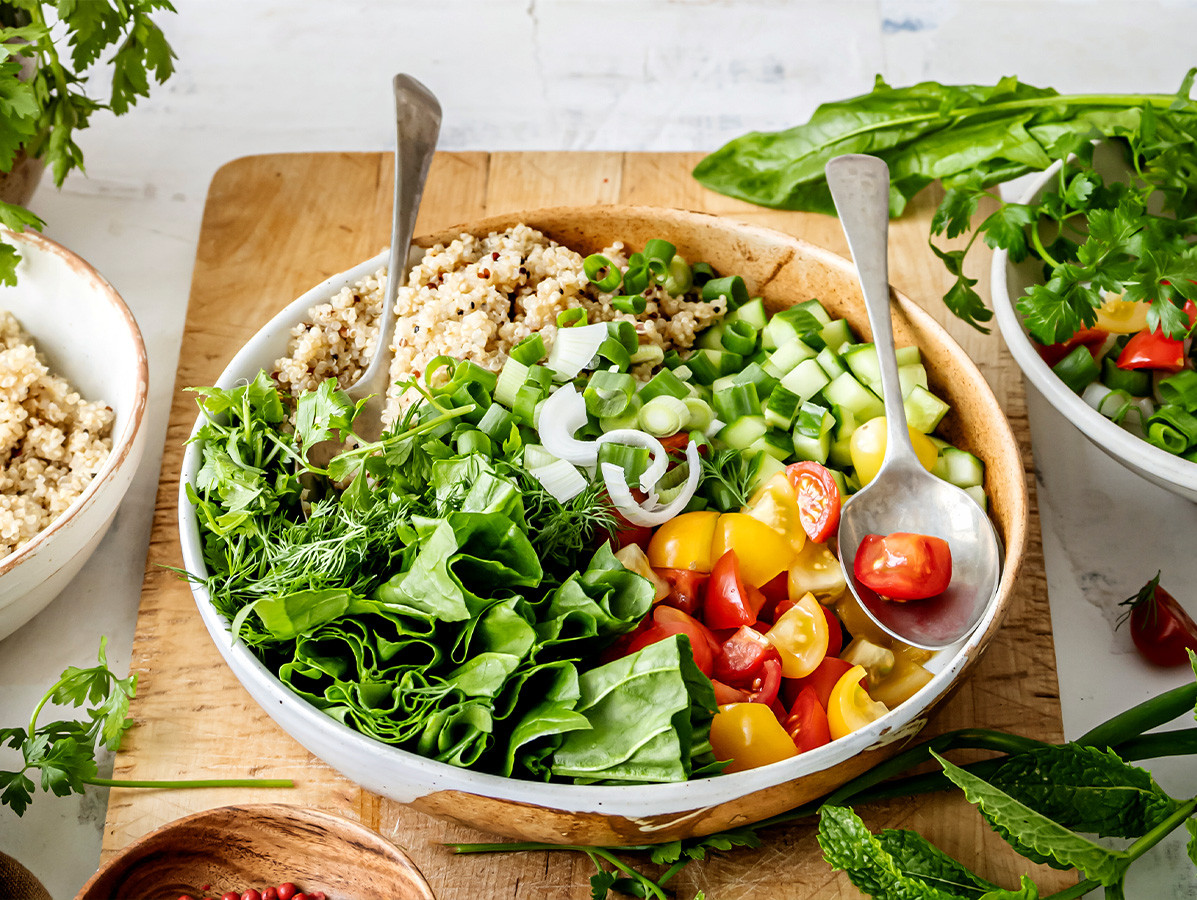
The Dutch eat more vegetable products such as fruit and vegetables, unsalted nuts and legumes and less red and processed meat. We also drink fewer sugary drinks. This is according to the new Food Consumption Survey (VCP) by RIVM.
These improvements can be seen among both children and adults. It should be noted, however, that most Dutch people do not yet comply with the Guidelines for Good Food. The Health Council of the Netherlands lists which foods and patterns can improve health. These include the advice to eat enough fruit and vegetables and wholemeal products such as bread.
The new poll (2019 - 2021) shows that Dutch people (aged 7 to 69) are eating more vegetables per day. Whereas the number of grams in the VCP over 2007 - 2010 stood at 128 grams per day, and in 2012 - 2016 at 135 grams, the number of grams of vegetables is now rising through to 163 grams. This doubles the percentage of adults meeting the vegetable guideline to 29%. In the previous poll, it was 16%. Fruit consumption per day also continues to rise: from 103 to 117 and now 129 grams per day.
Despite a very positive momentum for fruit and vegetable consumption growth until 2021, Freshfel Europe expects that consumption could drop significantly by 2022, due to high inflation.
Less meat and sugary drinks
At the same time, Dutch people ate significantly less red and processed meat: more than 20% less compared to the 2007 - 2010 measurement. There was also a drop in the amount of sugary drinks consumed (such as soft drinks or fruit juices). For instance, the number of grams per day dropped from 382 in 2012 - 2016 to 240 grams now. At the same time, people are drinking more tea and water.
Source: RIVM